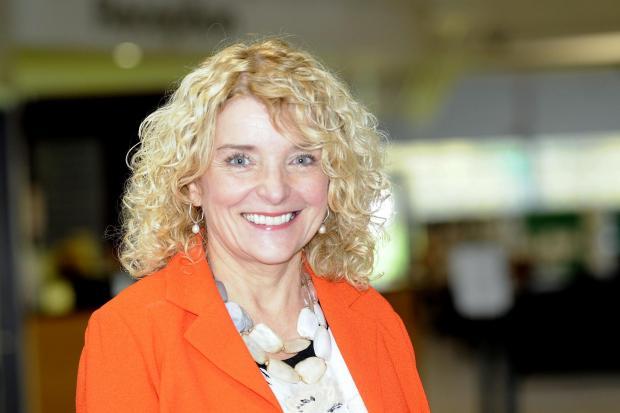In our work with finding participants for an ulcerative colitis trial, The British Research Panel have spoken with two volunteer participants, Jan and Joanne. They want to fight the stigma surrounding ulcerative colitis and make a difference for a disease that is often overlooked.
Here at the British Research Panel, we are in the ongoing process of finding clinical trial participants for a current ulcerative colitis trial. Working alongside Research Nurse, Justine Hill, we are continuing to search for patients at three UK sites in Merseyside, Oxford and Cambridge. Justine has already talked to more than 200 patients who have volunteered for the trial, one of them being Jan Souness. She is aware of the benefits of research and clinical trials.
“I signed up to make a difference,” Jan says. “I recognise that I’m benefitting from previous research and using medication that is more sophisticated than what some of my older family members had access to, who also suffered from ulcerative colitis. Without clinical trials, we can’t progress”, she continues.
Joanne Taylor who also volunteered for the trial agrees with Jan Souness that being able to contribute to progressing research is a huge motivating factor for signing up for clinical trials.
“It’s important that medical breakthroughs are made to progress medicine and to help to ease the pain and suffering of people with complex health problems. Early detection is key and something you can only get through research”, says Joanne.
Stigma surrounding ulcerative colitis in the UK
It is estimated that 1 in every 420 people in the UK are affected by ulcerative colitis. Currently there is no cure and its cause is obscure.
Ulcerative colitis is an inflammatory bowel disease that can be both painful and debilitating during flare ups. In this inflammatory condition, the immune system attacks tissue in the rectum or colon. Immunosuppressant drugs can reduce symptoms, however they often lead to increased risk of infection and cancer. There is certainly room for improvement in making this disease more manageable.
For those having to deal with ulcerative colitis, the struggle goes far beyond the physical symptoms of pain and discomfort.
“It’s a socially isolating disease that really zaps your confidence”, says Jan emotionally. “It often leads to misunderstandings and people can think you’re a bit off as you say you will be somewhere and never show up on time. That’s the struggle with ulcerative colitis, it is so unpredictable,” she continues.
“I remember arriving to my GP appointment a couple of minutes late and being told off by the nurse. She told me that in this surgery we expect everyone to turn up on time. It was degrading and I left in tears and feeling misunderstood,” she recalls. “No matter how many hours earlier you get up to get ready to go somewhere, sometimes you can simply be held up at the last minute because you have to go to the toilet!”
Opening up to conversation
Both Jan and Joanne emphasise the importance of being able to talk about the condition so that it becomes less of a taboo. Whilst research and clinical trials help to develop better treatment, conversation helps those suffering from ulcerative colitis to be understood and more likely to get the support they need.
“Yes, people do feel embarrassed about going to see someone about their colon, however early detection saves lives. If you do happen to require surgery, the sooner you go, the less they have to be invasive with you,” explains Joanne.
The misunderstandings that surround this autoimmune disease can certainly provide a barrier for many people which often leaves them feeling limited.
“I was quite successful in my career and I count myself lucky as there are many people with my condition that aren’t able to function,” Jan tells us. “I really do feel for people who aren’t comfortable talking about it.”
At the British Research Panel, our work with finding more participants for the ulcerative colitis trial continues. Through contributing to medical research, we hope to play a part in finding new medicines to make life easier for many people.
Written by Eloise Healey
Junior Consultant
British Research Panel

